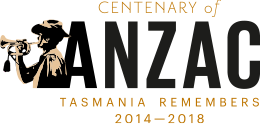Robert McCann DCM
Corporal Robert McCann had a rare coolness and contempt for danger. His dauntless bravery under fire and careful and expert management of his car enabled him to save the lives of many wounded men.
Bravery and personal risk saw Corporal Robert McCann recommended for a Distinguished Conduct Medal (DCM) for his actions evacuating the wounded on 25 April 1916 during a night attack by the 13th Brigade on Villers-Bretonneux, in France. Corporal McCann drove an ambulance engaged in evacuating casualties from the advancing infantry along the Amiens Road to the dressing station at Blangy-Cabaret.
Corporal McCann made many trips with the wounded along a section of road exposed to heavy shell fire. With the greatest of daring, he drove his car along the edge of the Bois de L’Abbe to collect a number of wounded awaiting evacuations. In pitch darkness, under heavy shell fire and while subject to incessant sniping from enemy machine guns concealed in the wood, he discovered a track enabling the vehicle to advance forward thus saving the stretcher bearers carrying the wounded a long and dangerous distance.
For many hours, Corporal McCann faced imminent peril on a road subjected to continual shelling as he drove steadily to-and-fro to evacuate the wounded. An ambulance driver was killed that night. However, Corporal McCann pluckily kept at his dangerous work until relieved in a state of exhaustion. His car was damaged by shell fire.
It was Corporal McCann’s actions that saw Colonel Kenneth Smith, of the 4th Australian Division, write the following on 16 September 1918:
“A careful and reliable driver at all times, Corporal McCann has always shown to best advantage under shell fire…a rare coolness and contempt for danger. His dauntless bravery under fire and his careful management of his car has been responsible for saving the life of many a wounded man.”
Robert McCann was a motor mechanic aged 20 who lived with his mother at 328 Murray Street, Hobart, when he enlisted on 20 February 1915 at Claremont, in Tasmania. Private McCann joined the 7th Field Ambulance and served as a stretcher bearer at Gallipoli.
On 27 October 1917 Robert McCann was promoted to the rank of Corporal.
Corporal McCann was wounded in action in France on 28 March 1918 and 6 April 1918, but continued to remain on duty. As recorded in his eventual obituary in 1939, Corporal McCann’s injuries included severe gunshot wounds to the left knee and right arm, in addition to shell shock and gas.
Corporal McCann returned to Australia in 1919. He lived for a time at West Wyalong, in New South Wales, before returning to Tasmania and entering into the family business with his brothers, who were prominent in the radio and music world.
Robert McCann died in the Royal Hobart Hospital on 2 February 1939. Newspaper reports described him as a war hero. Mr McCann was survived by his widow and three daughters, Gwen, Patricia and Irma, and his son, Michael.
Robert McCann, 42, was buried at Cornelian Bay Cemetery.
References
Australian War Memorial Recommendation files for Honours and Awards AIF 1914 – 1918, 4h Division, 24 April 1918 – 27 April 1918 and 11 September 1918 to 24 September 1918 part 4, Collection 1.
http://www.awm.gov.au/people/rolls/R1524283/’
Embarkation
http://www.awm.gov.au/research/people/nominal_rolls/first_world_war_embarkation/person.asp?p=195771
Honours and Awards
http://www.awm.gov.au/research/people/honours_and_awards/person.asp?p=408757
http://www.awm.gov.au/research/people/honours_and_awards/person.asp?p=366642
War Records
http://recordsearch.naa.gov.au/scripts/Imagine.asp?B=1938824
http://www.millingtons.com.au/records-search




